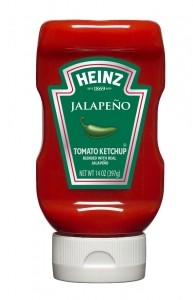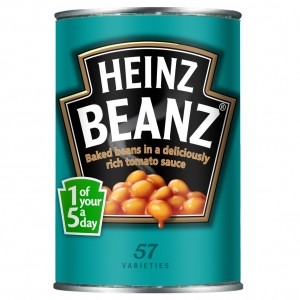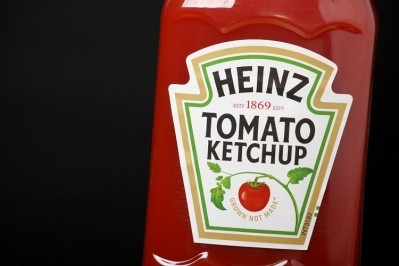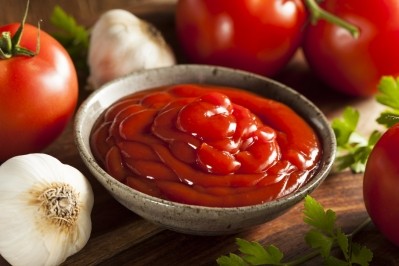Kraft Heinz R&D chief talks innovation: 'The technologies we are working on will give us a competitive edge'

The Kraft Heinz Company was formed in 2015 as the result of a merger between two industry bellwethers – Kraft Foods and HJ Heinz.
Present in more than 200 countries, Kraft Heinz’s portfolio includes a host of household names. But recent years have seen the company’s results fail to live up to the promise of its blockbuster brands. A tight focus on cost cutting combined with the consumer shift towards smaller innovative brands and healthier foods to depress the top line.
All this could be about to change.
Kraft Heinz turnaround to be fuelled by innovation
Updating the market on Kraft Heinz’s financial performance for 2019 – when organic revenue dropped 2.2% – CEO Miguel Patricio said the results were ‘disappointing’. However, he also set out a roadmap for delivering ‘best-in-class’ financials.
This includes ‘transforming’ the company’s capabilities and ‘making necessary investments in brands’ based on ‘deep consumer insights’. The turnaround ‘will take time’, Patricio told the market, but Kraft Heinz expects ‘significant progress’ in 2020.
Enter Miriam Ueberall.
After a 20-year career in the FMCG industry, including most recently a 13-year stint at Unilever, Ueberall made the decision to join Kraft Heinz ‘at a time of change’. She has been appointed to lead international R&D covering markets as diverse as Europe, China, Japan, Australia, Latin America, Russia, and the Middle East.
“It’s a fascinating time and I'm extremely excited and happy to be part of the company now,” she told FoodNavigator. “I believe innovation has a huge contribution to make. [It is] a big opportunity to be part of the transformation, to set us up for the future. And clearly R&D is playing a significant role in this.”
Ueberall believes that her appointment as international innovation lead reflects the importance that Kraft Heinz is placing on leveraging research, suggesting it was a ‘conscious choice from the company’ to bring her in.
“I'm heading the International Zone for R&D and that does definitely mark the importance that R&D has and also the intent of the organization to shape the future by shaping an R&D agenda. Since I joined the company, I've only had open doors. The corporate culture that we have invites you to own it and to do what is needed to shape that agenda.”
‘The importance of innovation will grow in the future’
Looking at Kraft Heinz’s past strategy, Ueberall conceded that ‘innovation was not always at the forefront’ and noted a ‘very strong focus on operational efficiencies’. She expects the latter approach to stay (‘it is there for a good reason and are not going away’). But the company is sharpening its focus on innovation.
“When I came in, what I saw is a very, very strong R&D team. We have very strong expertise in many capabilities.... I do think that the importance of innovation will gain in the future. And my role is to make sure that the technologies that we are developing, that we have in our hands, which are very rich, meet the business strategies and business objectives.”
The innovation chief was guarded about what technologies Kraft Heinz sees greatest potential in. “The technologies we're working on are looking at the future and obviously they should play a role giving us a competitive edge,” she explained.
But she did reveal the company has ‘very strong technologies’ in the area of packaging as well as efforts to improve the nutritional profile of its portfolio. “Clearly we are developing our technology agenda in this area. We are also looking at the technologies of the future to create healthy, appealing products that deliver consumers expectations.”
Ueberall distinguishes between innovation that ‘helps consumers experiment’ through brand extensions and technology-driven innovation that requires a longer pipeline and greater scale to implement. Adjustments to the international scope of Kraft Heinz’s R&D operation will enable the company to further develop the latter, she continued.
“The complexity that we see in our fast turning world is that on the one hand consumers are really up for experimenting, and we for sure need to have responses and help them to experiment.
“On the other hand, certain things will it take time. And when we talk about technology driven innovation, those things don't fall from the sky overnight. So very clearly there are elements which will require… a long pipeline and proper scale. That's the opportunity we now have, creating a sharper international structure.”
For Ueberall, striking a balance between renovating the existing portfolio and creating ‘new news’ is key.
From reformulation to ‘positive nutrition’
Ueberall revealed that Kraft Heinz is concentrating on a dual pronged approach to delivering healthy products, with a focus on reformulating existing lines and developing areas where the company's brands can provide 'positive nutrition'.
“We want to make sure that we feed the world properly and that people eat healthy. So on the one hand we want to educate and inform. On the other hand, we want to make sure that our products deliver the needs of the individual.
“We are aware of the public discussion on salt and sugar and we have led the agenda in sauces to reduce salt and sugar.”
Consumers desire healthier foods but are not willing to compromise on taste. Cutting salt and sugar levels in well-known products is therefore a balancing act. Go too far, too fast, and consumers will reject the taste. Go too slow and trust will be lost in commitments to make products healthier.
Taking the UK as an example, Kraft Heinz has been playing the long game on reformulation. According to data from IGD, since 1991 the company has made progress on reformulation across its portfolio. For instance, it has cut sugar and salt in its name-sake spaghetti hoops by 24% and 61% respectively, while its salad cream recipe now contains 19% less sugar and 35% less salt.
In Heinz Tomato Ketchup - a more challenging recipe to shift while maintaining taste - the company has cut total sugars by 8% and salt by 40%. In addition to this, Kraft Heinz has taken a more overt approach for consumers seeking significant reductions with the roll out of Heinz Tomato Ketchup with 50% less sugars and salt and Heinz Beanz with 50% less sugar and 25% less salt.
This approach reflects Heinz’s understanding of consumer segmentation and need-states. Ueberall said the company takes a strategic and nuanced approach to the decision to either reformulate the existing portfolio or launch new SKUs. “It really depends on the local market environment. There might be a conscious choice where you want to shift the whole market standard - but there might also be other areas where you make a conscious choice to extend the portfolio and therefore broaden the consumer appeal.
“You need to be extremely understanding of consumer needs."
While taking out the ‘bad’ nutrients is an important R&D priority, Kraft Heinz is also examining areas that it can ‘boost positive nutrition’.
“Consumers have certain beliefs and expectations of what products should do to them. Our role is to help them to make the right choices and to create the right offerings. By that, you will touch on the various elements [including] looking at if you want to add ‘goodies’ in areas where they weren't before. And, if so, why would you do that? You will also look at what the holistic meal that you want to support is. Our sauces [for instance] play a super important role and help people to cook tasty foods to indulge themselves at home.”
Connecting with consumers and the post-COVID future
Kraft Heinz’s pantry staples have faced a long, slow decline as consumers around the world turn to fresher options that are perceived as healthier. Centre-store aisles had become staid and certainly were not the most exciting place to operate.
All that changed with the sudden and disruptive onset of the coronavirus pandemic and subsequent global lockdowns. Suddenly, Kraft Heinz’s shelf stable Mac & Cheese or canned baked beans were a hot commodity.
Is this a trend Ueberall thinks could continue as we emerge into the post-COVID ‘new normal’?
“I would love to be able to predict the future,” she joked. “I can tell you that we are working really hard to be connected to consumers, to really understand what has changed, if it is here to stay and what will return to the pre-COVID nominal.”
She does, however, expect that the company’s ‘great brands’ will be relevant for consumers seeking out familiar products that they can trust. “One of the things we have is extremely strong brands and I think that's exactly what we saw during COVID… I think people at the moment really rely on brands they trust. That gives us a huge responsibility and opportunity.”
But while Kraft Heinz’s retail brands became go-to items for many consumers during the coronavirus crisis, the company is facing headwinds at its out-of-home business, with foodservice customers forced to shutter their operations. Ueberall expects this to prove a challenging segment for some time to come.
“We do anticipate that the out-of-home opportunities will not pick up in the near future into the same level as before. We do assume - and we see in China already a bit – that consumers will spend more of their dinner time at home cooking instead of going to restaurants. Will that reverse at one point in time? That's where the crystal ball comes in. I cannot predict, I assume it will find its place.
“Very importantly we have a role to play to help consumers to create appealing meals [at home] that are nutritious, that are healthy and that are fun.”
From baked beans in the UK, to sauces and salad dressings that ‘enrich meals’ and deliver an ‘exciting shelf’, Ueberall said there are ‘many opportunities’ for Kraft Heinz brands to leverage innovation that resonates with consumers.



















